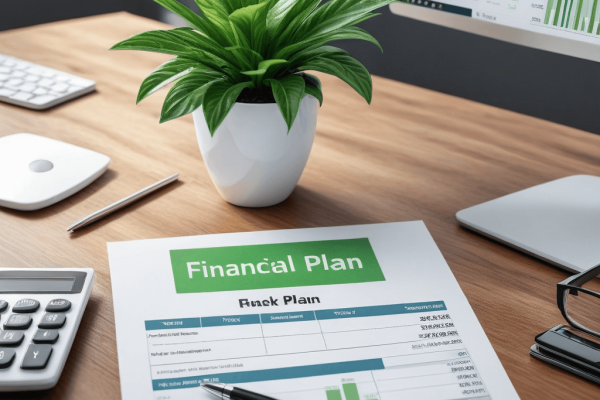Sustainable budgeting is critical for ensuring financial stability and growth.
By implementing sustainable budgeting practices, individuals and businesses can manage resources wisely and plan for future needs.
This article delves into what sustainable budgeting entails, its importance, and practical steps to achieve it effectively.
What is Sustainable Budgeting?
Sustainable Budgeting refers to the practice of creating a budget that supports long-term financial health and environmental responsibility. It integrates financial goals with sustainable practices, ensuring that expenditures do not exceed available resources while also considering the impact on the environment. This approach is essential for individuals and organizations aiming to achieve both economic and ecological sustainability.
Key Elements: When we talk about sustainable budgeting, we focus on key elements such as tracking income and expenses meticulously. This allows for better decision-making that prioritizes both savings and responsible spending. By analyzing financial patterns, individuals can identify areas where they can cut back without sacrificing necessary expenses.
Allocating Funds: Additionally, a sustainable budget includes allocating funds towards investments in renewable resources or eco-friendly products. This not only fosters a greener future but can also lead to long-term savings. For example, opting for energy-efficient appliances might involve a higher upfront cost but results in lower energy bills over time.
Achievable Goals: Furthermore, setting achievable goals is crucial in sustainable budgeting. By breaking down larger financial objectives into manageable steps, individuals can maintain motivation and track progress. This strategic approach ensures that budgeting becomes an ongoing practice rather than a daunting task, enabling continuous improvement.
The Importance of Sustainable Budgeting
The importance of Sustainable Budgeting cannot be overstated.
Sustainable Budgeting helps individuals and organizations manage their finances responsibly while considering environmental impacts. By prioritizing sustainable practices, one can align financial goals with eco-friendly choices. This practice not only encourages saving money but also promotes a healthier planet.
For instance, by investing in energy-efficient options, households can significantly reduce their utility bills. Furthermore, businesses that adopt sustainable budgeting practices often find themselves more competitive in the market.
Such businesses can attract customers who value ecological responsibility, leading to greater customer loyalty and increased revenue.
In short, embracing Sustainable Budgeting is a smart financial strategy that benefits both people and the environment.
Key Principles of Sustainable Budgeting
Key principles of Sustainable Budgeting include understanding and prioritizing essential needs. Identifying fixed and variable expenses is crucial for a balanced budget.
Fixed expenses are regular costs that do not change, like rent or mortgage payments. On the other hand, variable expenses are more flexible and can include dining out or entertainment.
Another principle is to set realistic financial goals. This can involve creating short-term and long-term savings plans.
Furthermore, monitoring spending habits helps to stay on track. Evaluate your budget regularly to make necessary adjustments.
Lastly, incorporating eco-friendly practices into your budget can lead to both cost savings and environmental benefits. For example, practicing energy conservation can lower utility bills while contributing to sustainability.
How to Create a Sustainable Budget
Creating a sustainable budget involves several important steps. First, start by analyzing your current financial situation. List all your sources of income and expenses. Understanding your cash flow is essential for making informed decisions.
Next, prioritize your expenses by differentiating between needs and wants. Focus on essential expenses like housing, utilities, and food. Cut back on non-essential spending to free up resources for savings or investments.
After that, set achievable financial goals. This could include saving for an emergency fund or investing in eco-friendly projects. It’s also helpful to use budgeting tools or apps to track your spending and savings.
Regularly review and adjust your budget to reflect any changes in income or expenses, ensuring it stays aligned with your financial goals.
Tools for Effective Sustainable Budgeting
Tools for effective sustainable budgeting can make a big difference. One useful tool is a budgeting app. These apps help track your spending and income. Popular options include “Mint” and “YNAB (You Need A Budget)”. They allow you to set financial goals and send alerts when you exceed your budget.
Another important tool is a spending tracker. This can be a simple spreadsheet or a dedicated application that logs every purchase. By keeping a detailed record, you can see where your money goes and identify areas to cut back.
Also, consider using an envelope system for cash expenditures. This method allocates specific cash amounts for different categories, helping you limit spending.
Finally, financial education resources, like books and online courses, can provide additional strategies for budgeting sustainably.
Common Mistakes in Sustainable Budgeting
Common mistakes in sustainable budgeting can lead to financial stress. One major mistake is not tracking expenses. Without keeping a record, it is easy to overspend and lose sight of goals.
Another mistake is setting unrealistic goals. If financial targets are too ambitious, it can cause frustration and lead to abandoning the budget entirely.
Additionally, ignoring variable expenses can create problems. Fixed expenses are easy to predict, but variable costs can fluctuate. Not accounting for these can throw a budget off track.
Finally, many people forget to review their budgets regularly. Budgeting is not a one-time task; it requires ongoing adjustments to reflect changes in income or spending habits.
Learning from these common mistakes can enhance the budgeting process and contribute to a more sustainable financial future.
Tips for Sticking to Your Sustainable Budget
Tips for sticking to your sustainable budget are essential for success.
First, always track your spending carefully. Use tools like apps or journals to record expenses. This will help you understand where your money goes.
Next, set realistic goals. Make sure your targets are achievable and specific to avoid frustration.
Another tip is to automate savings. Set up automatic transfers to savings accounts to make saving easier.
Additionally, check in on your budget regularly. Monthly reviews help you adjust for changes in income or unexpected expenses.
Don’t forget to reward yourself for sticking to your budget. Small rewards can keep you motivated on your financial journey.
Staying flexible is also important, as life’s circumstances can change.
With these tips, you can maintain control over your finances and work toward your long-term goals.
In Conclusion
In today’s financial landscape, Sustainable Budgeting is more essential than ever. By committing to a budgeting strategy that prioritizes both fiscal responsibility and environmental stewardship, individuals and organizations can achieve long-term financial health.
Understanding the key principles of sustainable budgeting helps in creating effective financial plans and making informed spending decisions. Utilizing the right tools can simplify budgeting efforts and improve adherence to financial goals.
Most importantly, acknowledging common budgeting mistakes and implementing effective tips can empower you to stick to your budget. By continuously refining your budgeting approach, you pave the way for a more sustainable future, both financially and ecologically.


